Configuration
Configuration
To configure an API connection, you must first generate an API key and create a user for authorization.
Generate API Key
The first step to connect to the API is to generate an API Key. To do this, in the administration section, select Integration in the left menu and then Web service - Applications.
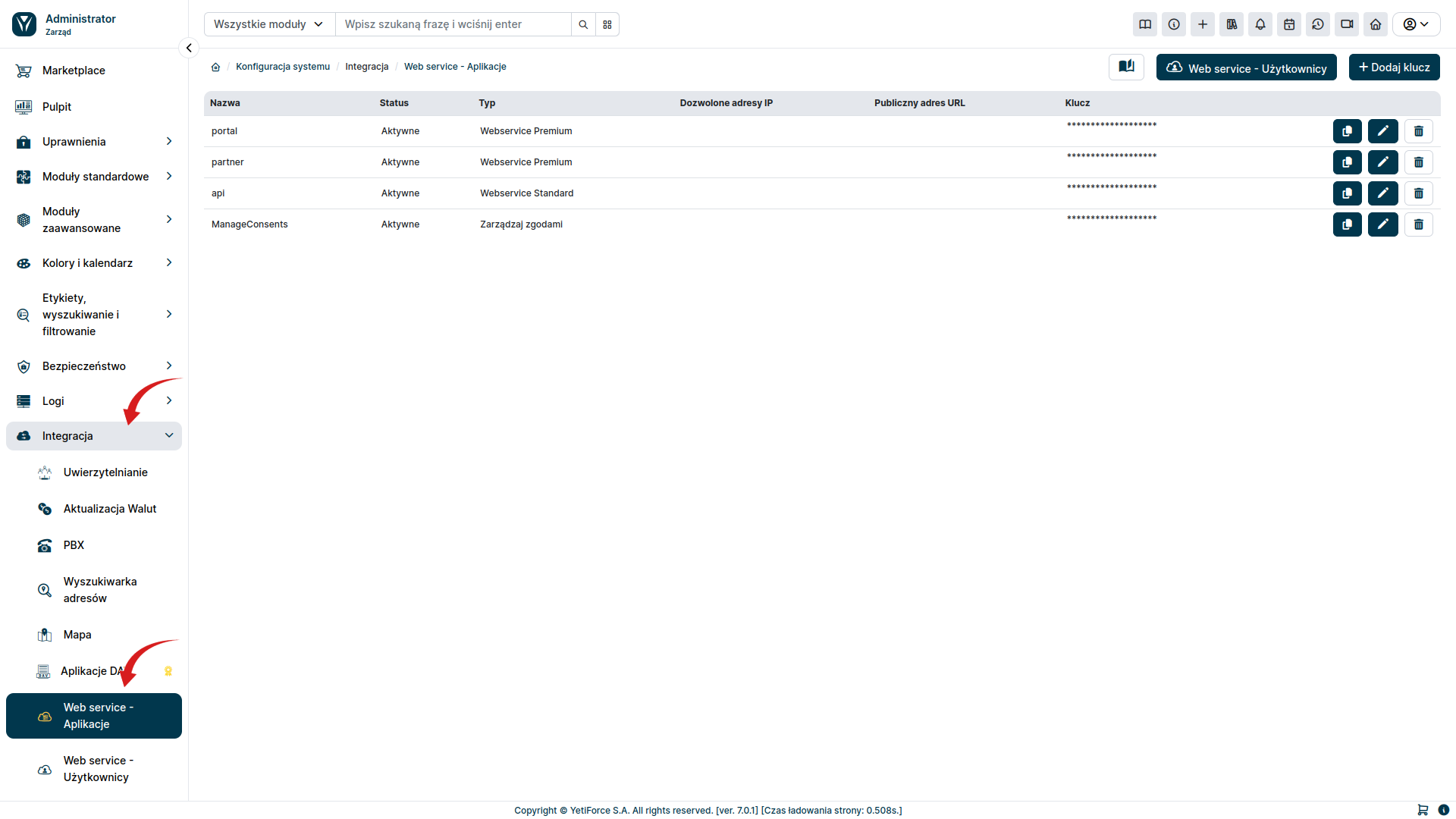
To add a new API Key, select Add Key from the top right.
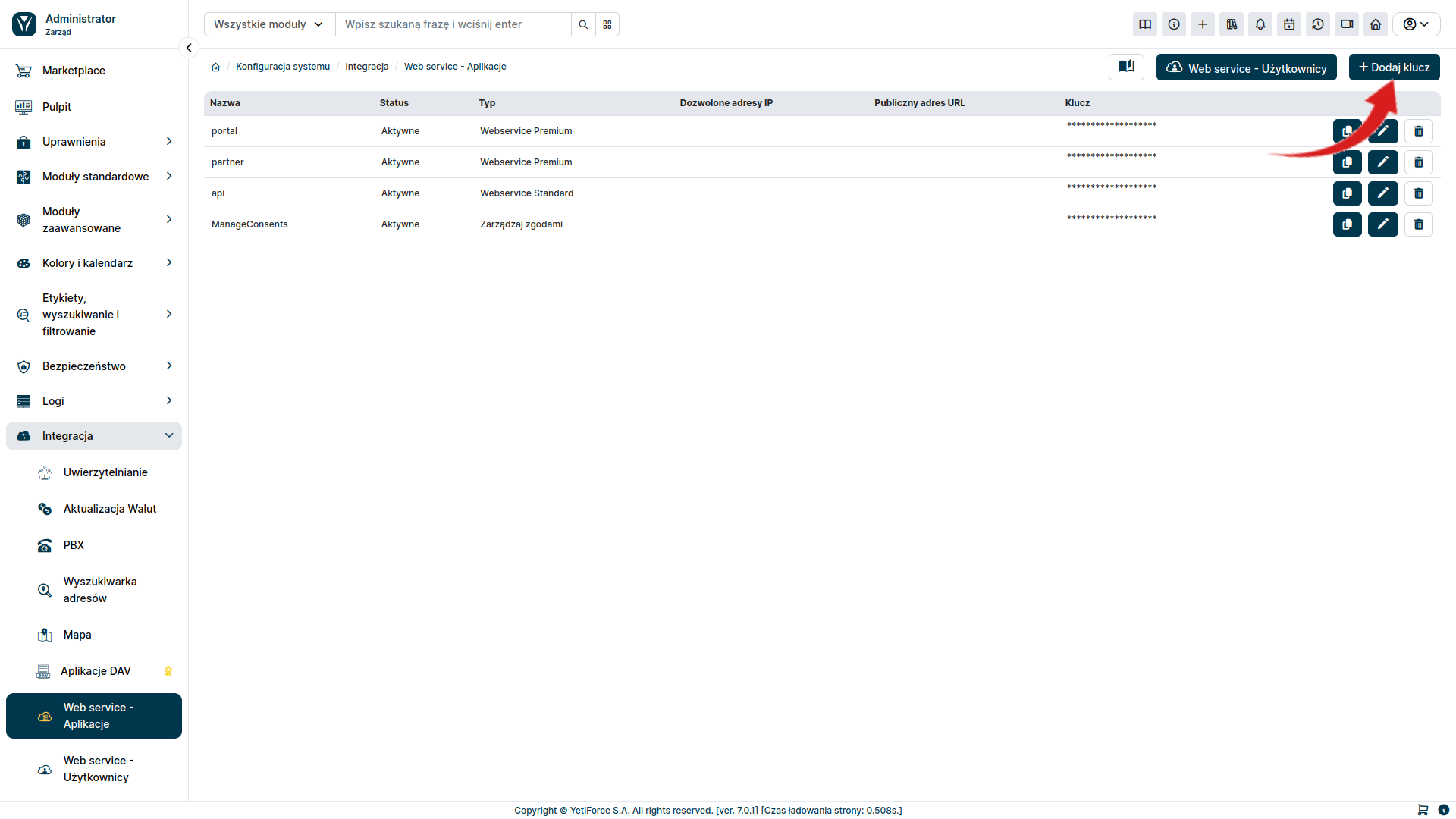
A popup window will appear where you can add a new API Key:
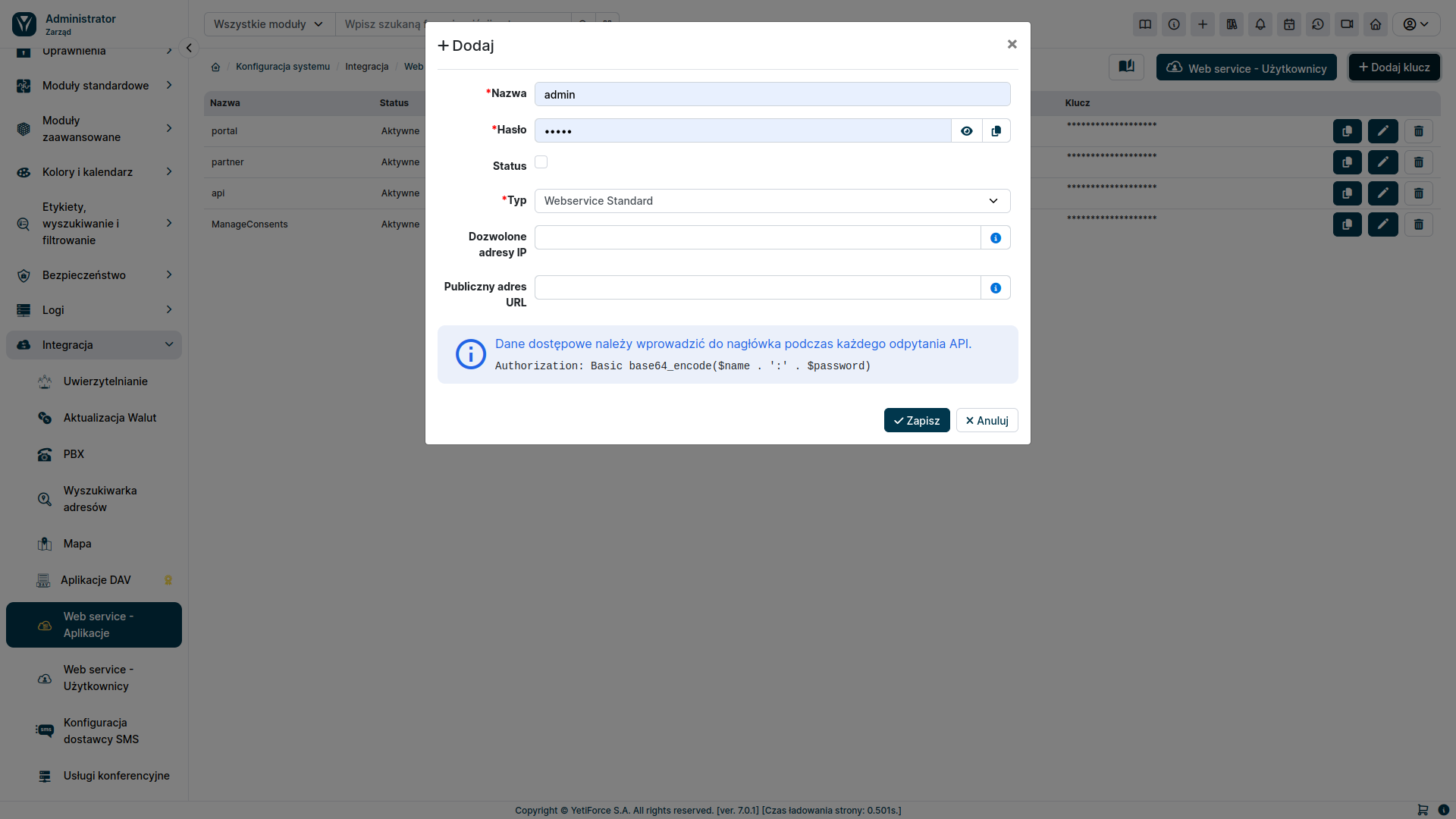
Name
- any name that will help you identify the new entry
Password
- string of characters used for authentication
Status
- leaving this checkbox unticked will cause the API Key to be inactive
Type
- determines what functionalities the API Key will cover
Allowed IPs
- Empty value - access from all servers. If IP addresses are entered (after a comma), then API access will be allowed only from these IP addresses. Example: x.x.x.x , y.y.y.y
Public URL address
- The URL will be used to send email notifications where the URL address can be used in the content, e.g., password reset in the Customer Portal, link to view the record in the Customer Portal
Create user
The next step is to create validation data for the API. To do this, in the administration section from the left menu, select Integration ➞ Web service - Users.
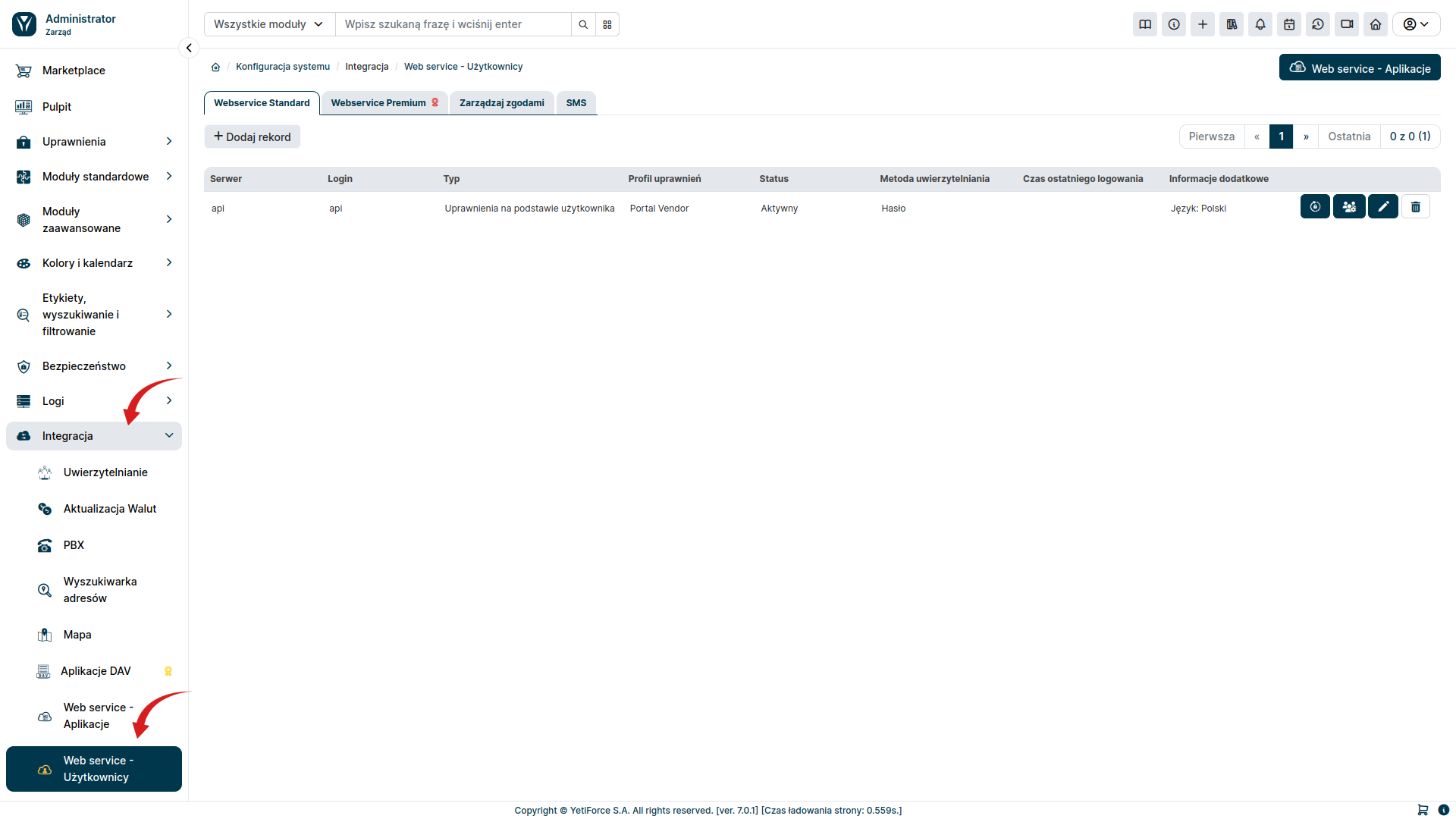
The user will be added for a specific type of service, so first select the relevant tab.
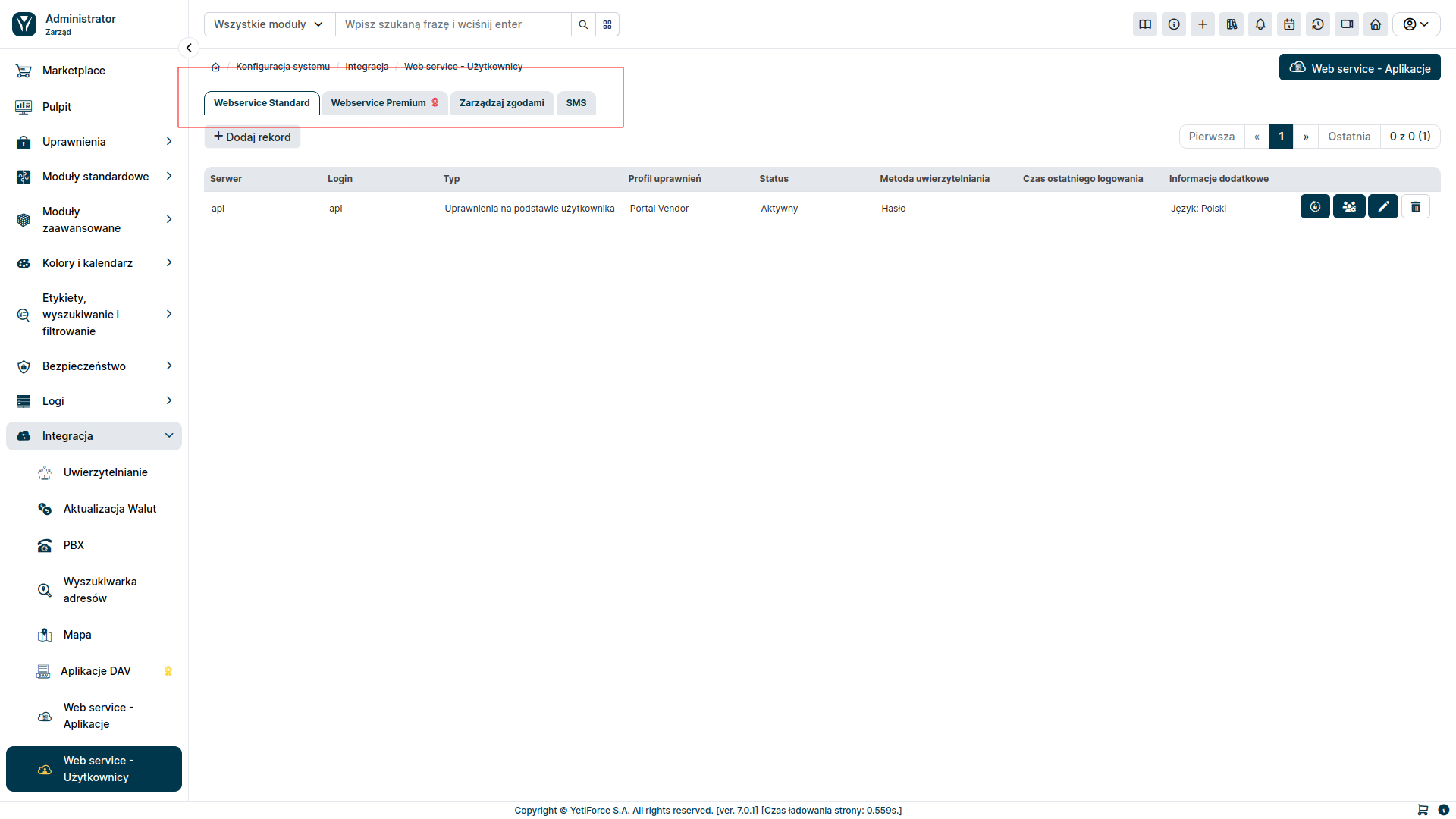
To add a new user, select the Add record button. A popup window will then appear, where you can configure credentials.
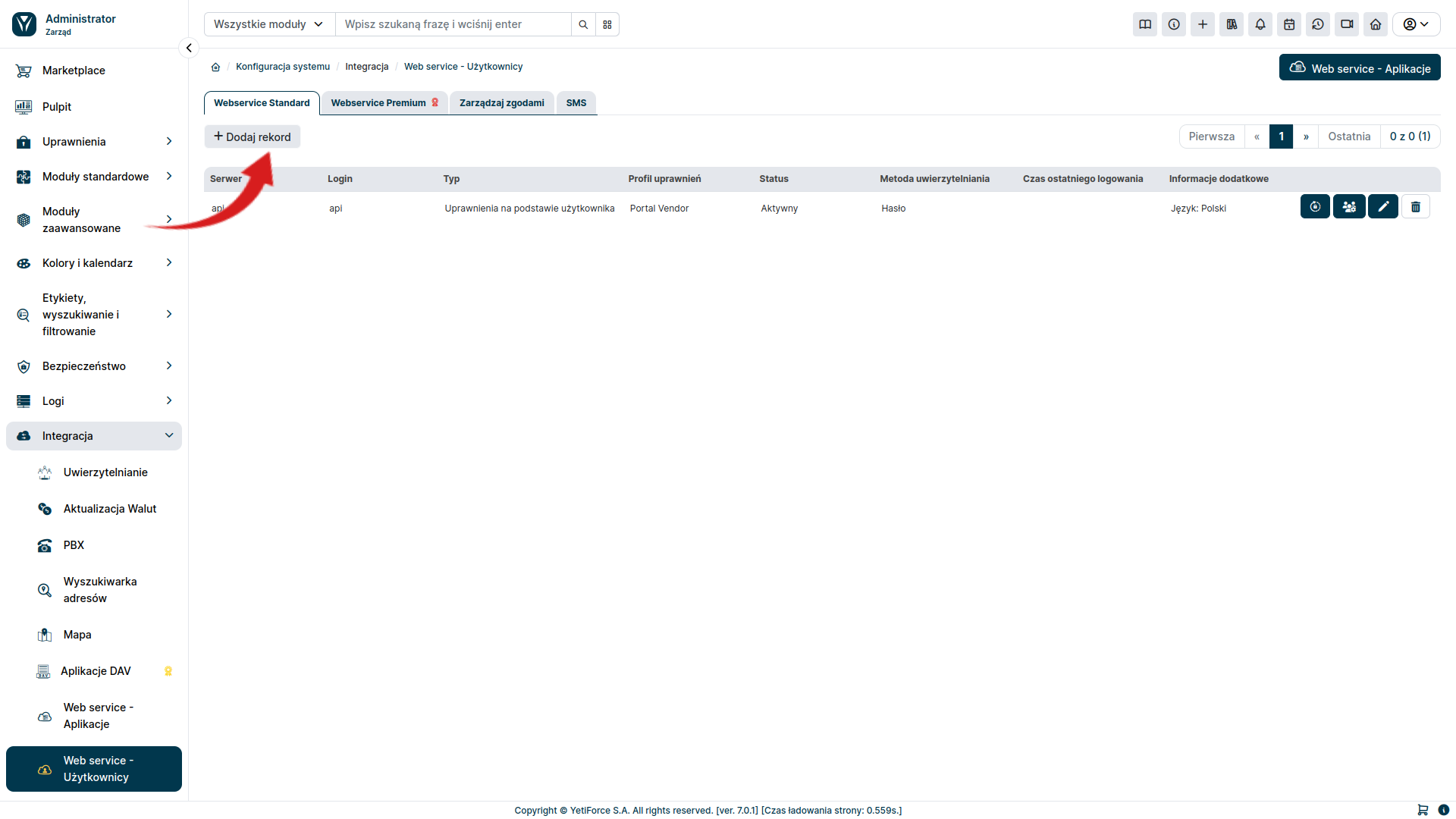
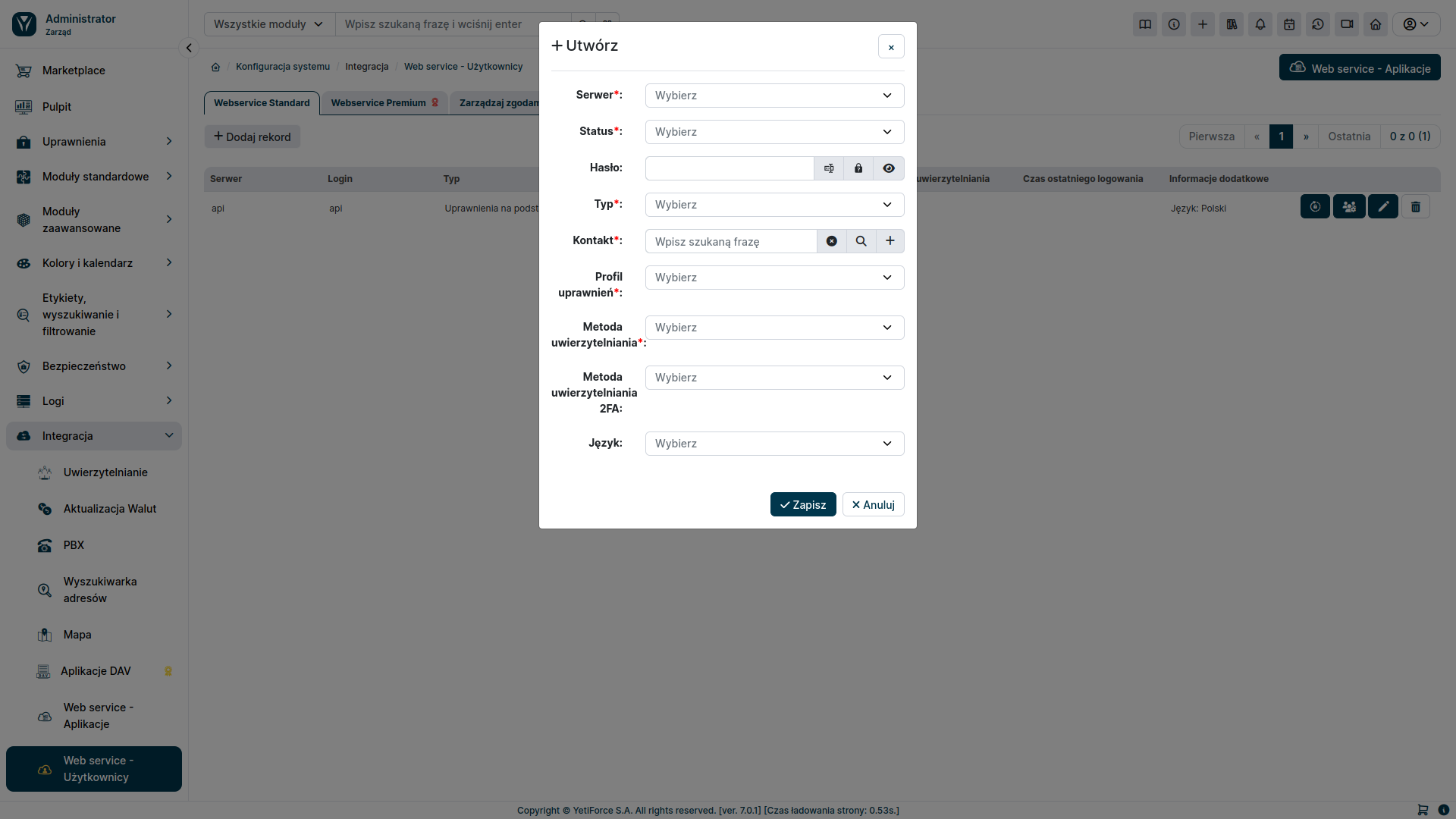
Server
- choose the API Key that will be associated with the new user
Status
- defines if the user is active
Password
- string of characters used for authentication
Type
- basis for record permissions
Contact
- optional depending on the selected
Typeof record permissions
Permission profile
- permissions for actions and data are based on the selected user
Authentication Method and 2FA Authentication Method
- specifies the details for user authentication
After creating the API Key and user, you can start connecting via API. How to do that is described in this article: First API Connection